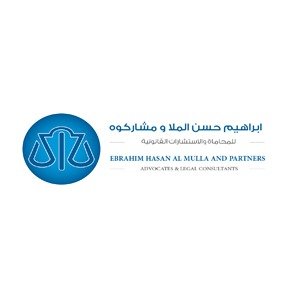Best Landlord & Tenant Lawyers in Ras al-Khaimah
Share your needs with us, get contacted by law firms.
Free. Takes 2 min.
Free Guide to Hiring a Real Estate Lawyer
List of the best lawyers in Ras al-Khaimah, United Arab Emirates
United Arab Emirates Landlord & Tenant Legal Articles
Browse our 1 legal article about Landlord & Tenant in United Arab Emirates written by expert lawyers.
- Handling Dubai Rental Disputes: A 2025 Guide for Landlords and Tenants
- Introduction: Navigating the 2025 Rental MarketUnderstanding Dubai's Regulatory StructureDubai Land Department (DLD)Real Estate Regulatory Agency (RERA)Rental Disputes Center (RDC)The Legal Framework: Laws No. 26 and 33The Tenancy Agreement and Ejari RegistrationMandatory Registration RequirementsAutomatic Renewal ProvisionsThe 2025 Smart Rental Index RevolutionFrom Static Calculator to Dynamic AI SystemStar Rating System and Property... Read more →
About Landlord & Tenant Law in Ras al-Khaimah, United Arab Emirates
Landlord and Tenant Law in Ras al-Khaimah, United Arab Emirates, governs the rights and responsibilities of both landlords and tenants in the rental sector. This law ensures that both parties are protected and provides guidelines for resolving disputes related to rental properties.
Why You May Need a Lawyer
There are several situations where you may require legal help in Landlord & Tenant matters. Some common examples include:
- Disputes over rent payments or increases
- Eviction processes and notices
- Lease agreement review and negotiation
- Property damage and liability issues
- Illegal rent hikes or unfair treatment by the landlord
Local Laws Overview
Ras al-Khaimah's Landlord & Tenant laws include provisions from the UAE federal law and specific regulations set by the emirate's local government. Some key aspects of local laws include:
- Lease agreements: It is recommended to have a written lease agreement that outlines the rights and obligations of both parties.
- Rent payments: Rent must be paid as agreed in the lease agreement, and the landlord must provide a receipt for each payment made.
- Security deposits: Landlords can request a security deposit, usually equivalent to one month's rent, which should be returned at the end of the tenancy period.
- Tenant's rights: Tenants have the right to a habitable and well-maintained property. The landlord is responsible for repairs and maintenance, except for minor repairs conducted by the tenant.
- Eviction process: If a tenant violates the terms of the lease agreement, the landlord has the right to pursue eviction through the proper legal channels.
Frequently Asked Questions
1. Can a landlord increase the rent at any time?
No, the rent can only be increased once every 12 months, and the increase must follow the guidelines set by the local government.
2. What should I do if my landlord refuses to make necessary repairs?
You should notify your landlord in writing about the necessary repairs and give them a reasonable timeframe to address the issue. If they fail to do so, you can file a complaint with the appropriate authorities or seek legal assistance.
3. Can a landlord evict a tenant without a valid reason?
No, a landlord must have a valid reason, such as non-payment of rent or breach of the lease agreement, to evict a tenant. They must also follow the proper legal procedures.
4. Can a landlord withhold the security deposit without reason?
No, a landlord can only withhold the security deposit if there are legitimate deductions for unpaid rent, damages beyond normal wear and tear, or any outstanding bills or fees as specified in the lease agreement.
5. Can a landlord enter the rented property without permission?
No, a landlord must provide at least 24-hours' notice and obtain the tenant's permission to enter the property, except in cases of emergency.
Additional Resources
For further information or legal assistance regarding Landlord & Tenant matters, you may consider reaching out to the following resources:
- Ras Al Khaimah Courts: https://www.rakcourts.ae
- Ras al-Khaimah Real Estate Regulatory Authority (RERA): https://www.rera.gov.ae
- Legal Consultancy Firms specialized in Landlord & Tenant law in Ras al-Khaimah.
Next Steps
If you require legal assistance in Landlord & Tenant matters, it is advisable to consult with an experienced lawyer who can provide personalized advice based on your specific situation. They can help guide you through the legal processes, protect your rights, and ensure a fair resolution for any disputes that may arise.
Lawzana helps you find the best lawyers and law firms in Ras al-Khaimah through a curated and pre-screened list of qualified legal professionals. Our platform offers rankings and detailed profiles of attorneys and law firms, allowing you to compare based on practice areas, including Landlord & Tenant, experience, and client feedback.
Each profile includes a description of the firm's areas of practice, client reviews, team members and partners, year of establishment, spoken languages, office locations, contact information, social media presence, and any published articles or resources. Most firms on our platform speak English and are experienced in both local and international legal matters.
Get a quote from top-rated law firms in Ras al-Khaimah, United Arab Emirates — quickly, securely, and without unnecessary hassle.
Disclaimer:
The information provided on this page is for general informational purposes only and does not constitute legal advice. While we strive to ensure the accuracy and relevance of the content, legal information may change over time, and interpretations of the law can vary. You should always consult with a qualified legal professional for advice specific to your situation.
We disclaim all liability for actions taken or not taken based on the content of this page. If you believe any information is incorrect or outdated, please contact us, and we will review and update it where appropriate.











